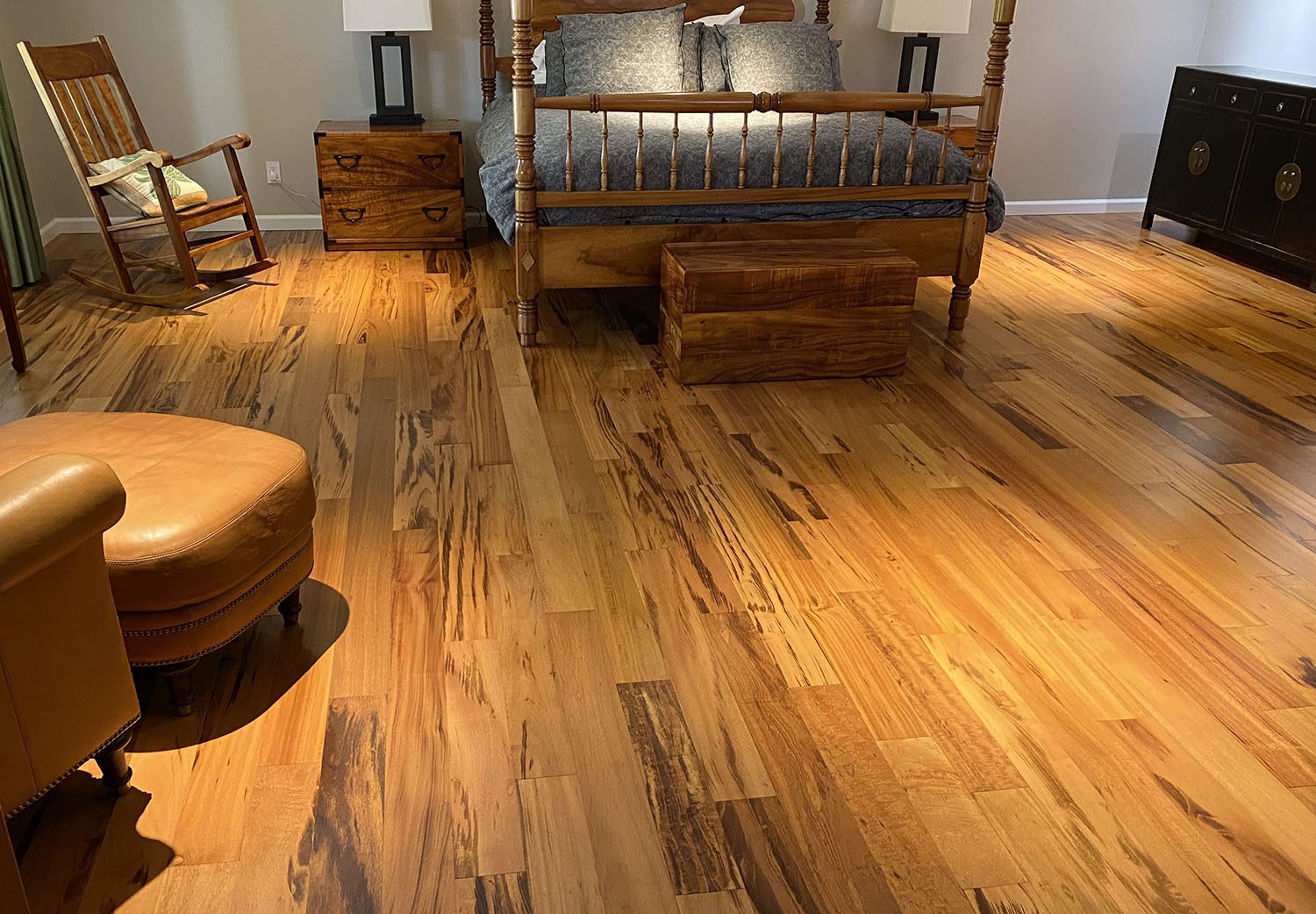When it comes to flooring, hardwood has always been a symbol of elegance, warmth, and durability. But with so many options available in the market, from traditional hardwoods to cheaper alternatives like laminate, how do you decide which is the best for your home? Let’s break down the costs and longevity of each option to help you make an informed decision.
1. The Cost of Hardwood Flooring
The price of hardwood flooring can vary widely based on the type of wood, its origin, grade, and finish. On average:
- Domestic Hardwoods like oak, maple, and cherry typically range from $4 to $10 per square foot, excluding installation.
- Exotic Hardwoods such as Brazilian cherry, Tigerwood, or Brazilian Walnut can range from $4 to $9 per square foot, again excluding installation. These woods are often denser and more durable than their domestic counterparts.
Pro Tip: Buying hardwood flooring direct from a lumber mill like AdvantageLumber.com can save you money opposed to buying from a box store. Some box stores have been known to get their floors prefinished in China which is not usually a durable finish.
Installation costs for hardwood flooring can range from $3 to $8 per square foot, depending on the complexity of the project and the region you live in.
2. Longevity: Real Hardwood vs. Laminate Flooring
Real Hardwood: With proper care, real hardwood floors can last a lifetime. They can be sanded and refinished multiple times, allowing them to look brand new even after decades of use. This longevity often justifies the initial investment for many homeowners.
Laminate Flooring: Laminate is a more affordable alternative to hardwood, often costing between $1 to $5 per square foot. It’s designed to replicate the look of real wood but is made from composite wood pressed together at high temperatures. Some laminates can start chipping and peeling in as little as 5 to 10 years, it can’t be refinished like real wood. Once it’s worn out, it needs to be replaced.
3. Exotic Hardwood Flooring: The Pinnacle of Durability
If you’re looking for the most durable and long-lasting option, exotic hardwoods are the way to go. Not only do they offer unique grain patterns and colors, but they are also often harder than domestic woods. This means they’re more resistant to dents, scratches, and everyday wear and tear.
For instance, the Janka hardness scale, which measures the resistance of wood samples to wear and denting, often ranks exotic hardwoods higher than domestic ones. Brazilian cherry, for example, has a Janka rating of 2,820, while red oak, a common domestic hardwood, has a rating of 1,290.
Conclusion
While the initial cost of hardwood flooring, especially exotic varieties, can be higher than alternatives like laminate, the longevity and durability they offer often make them a worthwhile investment. Not only do they enhance the aesthetic appeal of a space, but they also add value to a home in the long run. When choosing the right flooring for your home, consider not just the initial cost but also the long-term value and benefits it will bring.
